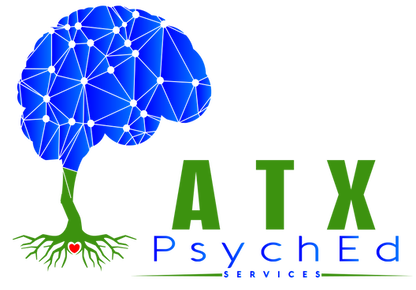Psychological + Psychoeducational Assessment Services
Types of Evaluations Offered:
Attention-Deficit/Hyperactivity Disorder (ADHD) Testing
Autism Spectrum Disorder Testing
Learning Disability Testing (dyslexia, dysgraphia, dyscalculia)
Neuropsychological Testing
Psychological Testing (i.e., anxiety, mood disorders)
Intellectual Giftedness
Twice Exceptionalities (2E)
Other Services Offered:
IEP/504 Advocacy
Consultation
Record Review
**Dr. Gin is not providing therapy or counseling services at this time.
Portions of evaluation are described below:
Cognitive/IntellectualEvaluation of important cognitive processing areas including verbal reasoning, fluid reasoning, visual-spatial ability, auditory processing, short-term and working memory, long-term retrieval, processing speed. Specific cognitive strengths and weaknesses will be identified, as well as cognitive implications to academic functioning. A thorough cognitive/ intellectual assessment is critical in understanding how one best learns and processes information. Intellectual evaluation can also help identify children who are gifted.
Neuropsychological Evaluation |
Academic AchievementEvaluation of academic achievement may include basic reading skills, reading comprehension, reading fluency, math calculation, math problem solving, math fluency, spelling, written expression, oral expression, and listening comprehension. A test battery can be individualized to address specific academic concerns, including dyslexia, dysgraphia, and dyscalculia.
|
Social/Emotional/BehavioralEvaluation of social, emotional, and behavioral functioning may be warranted for individuals experiencing signs of depression, anxiety, autism spectrum disorder, ADHD, and other behavioral disorders. In addition to cognitive assessment, this typically includes observations, in-depth interviews, and completion of rating scales by parents, teachers, and/or the child.
|
A neuropsychological evaluation is a more in-depth combination of the above-mentioned assessments composed of (1) a clinical interview and observations of the child, (2) parent interview and, if possible, teacher interview, (3) a review of relevant school and/or medical records, and (4) administration of a series of tests that measure areas of brain functioning that may include: attention, executive functioning, memory, language, visuospatial abilities, sensory-perceptual functioning, fine motor skills, academic performance, intellectual abilities, and behavioral/emotional functioning. An appropriate assessment battery will be selected based on the presenting problems and referral questions. Dr. Gin offers evaluation of neuropsychological functioning for children ages 4 years through 16 years of age.
Assessment of executive functioning (EF) skills can also be assessed as part of any evaluation, as they have a profound impact on academic and social/emotional/behavioral functioning. There are many components to EF, including response inhibition, cognitive flexibility, setting and achieving goals, task initiation, planning, organization, and time management, abstract reasoning/concept formation, working memory, attentional control, controlling emotions and social behaviors, self-monitoring, and metacognition (awareness and understanding of one's own thought process). Individuals with learning disabilities, autism spectrum disorders, ADHD, and emotional/behavioral disorders often exhibit significant EF deficits, which need to be addressed with interventions in school and at home.
Assessment of executive functioning (EF) skills can also be assessed as part of any evaluation, as they have a profound impact on academic and social/emotional/behavioral functioning. There are many components to EF, including response inhibition, cognitive flexibility, setting and achieving goals, task initiation, planning, organization, and time management, abstract reasoning/concept formation, working memory, attentional control, controlling emotions and social behaviors, self-monitoring, and metacognition (awareness and understanding of one's own thought process). Individuals with learning disabilities, autism spectrum disorders, ADHD, and emotional/behavioral disorders often exhibit significant EF deficits, which need to be addressed with interventions in school and at home.
NOTE: PARENTS HAVE THE RIGHT TO REQUEST A FULL INDIVIDUAL EVALUATION (FIE) FROM THEIR PUBLIC SCHOOL DISTRICT, AT NO CHARGE, WHEN A DISABILITY IS SUSPECTED.
DISCLAIMER: As of Aug 14, 2024, Dr. Gin is no longer offering evaluation or consultation services for families attending Leander ISD schools due to a potential conflict of interest. Referrals to other providers are available upon request.
DISCLAIMER: As of Aug 14, 2024, Dr. Gin is no longer offering evaluation or consultation services for families attending Leander ISD schools due to a potential conflict of interest. Referrals to other providers are available upon request.
